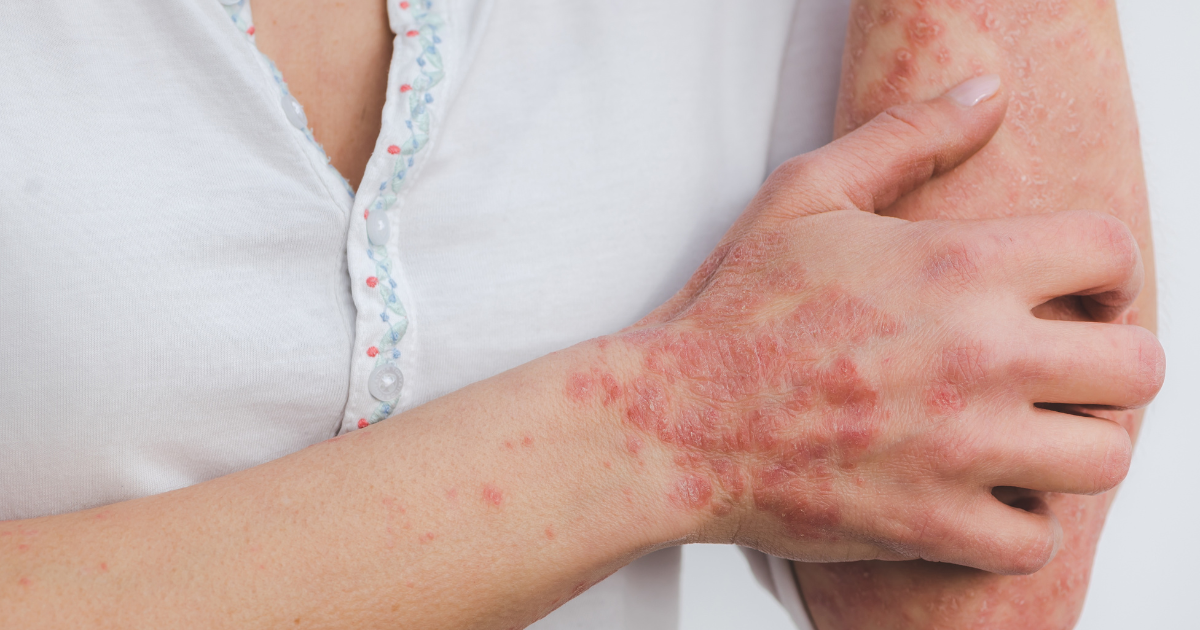Introduction
Many people with lupus, especially Systemic Lupus Erythematosus (SLE), experience increased skin sensitivity—especially to sunlight and ultraviolet (UV) radiation. This condition, known as photosensitivity, can lead to skin rashes, flares, and even internal inflammation. Understanding how to care for your skin and avoid UV exposure is essential to managing lupus effectively.
Why Does Lupus Make Skin Sensitive to Sunlight?
Lupus is an autoimmune disease in which the body’s immune system mistakenly attacks its own tissues. UV rays can trigger this immune response, leading to inflammation in the skin and other organs. Even a few minutes of sun exposure can sometimes result in skin rashes, fatigue, or joint pain in lupus patients.
Common Skin Problems in Lupus
- Butterfly rash (malar rash): A red rash across the nose and cheeks.
- Discoid rash: Raised, scaly patches that can leave scars.
- Photosensitive rashes: Rashes that appear or worsen after sun exposure.
- Skin flare-ups after even brief sunlight exposure.
Tips to Protect Your Skin from UV Damage
1. Use a Broad-Spectrum Sunscreen
- Choose an SPF 50+ broad-spectrum sunscreen that protects against both UVA and UVB rays.
- Apply generously to all exposed skin at least 15–30 minutes before going outdoors.
- Reapply every 2 hours, or after sweating or swimming.
2. Wear Sun-Protective Clothing
- Opt for long-sleeved shirts, full-length pants, and wide-brimmed hats.
- Use UV-blocking sunglasses to protect your eyes and facial skin.
- Look for clothing labeled with UPF (Ultraviolet Protection Factor) ratings.
3. Avoid Peak Sun Hours
- Try to stay indoors between 10 AM and 4 PM, when UV rays are strongest.
- Plan outdoor activities in early mornings or late evenings.
4. Seek Shade and Use Umbrellas
- If you’re outside, always try to stay in shaded areas.
- Use umbrellas or portable shades when resting outdoors.
5. Be Cautious Even on Cloudy Days
- UV rays can penetrate clouds, so always apply sunscreen even when it’s overcast.
6. Check Medications for Sun Sensitivity
- Some lupus medications (like NSAIDs or antibiotics) can increase sun sensitivity.
- Ask your doctor or pharmacist if your medicine has photosensitive effects.
Skincare Tips for Lupus-Sensitive Skin
- Use fragrance-free, hypoallergenic products to avoid irritation.
- Keep your skin moisturized with gentle, non-comedogenic creams.
- Avoid harsh exfoliants or alcohol-based products that can dry or inflame your skin.
- Consider calming ingredients like aloe vera or chamomile for mild flare-ups.
Frequently Asked Questions
Q: Can lupus rashes be permanent?
A: Some rashes, like discoid lupus lesions, can cause scarring if not treated early. Timely protection and care are essential.
Q: Is sunscreen enough to protect lupus skin?
A: Sunscreen is vital, but clothing, timing, and shade are just as important for full protection.
Q: Can lupus affect skin without sun exposure?
A: Yes, lupus can cause skin symptoms due to internal triggers like stress, hormonal changes, or infections.
Conclusion
Living with lupus means taking extra care of your skin. Sunlight can be a serious trigger, but with the right precautions—sunscreen, protective clothing, and mindful habits—you can reduce your risk of skin flares and maintain better control over your condition. Be proactive and protect your skin daily, even when the sun doesn’t seem harsh.





